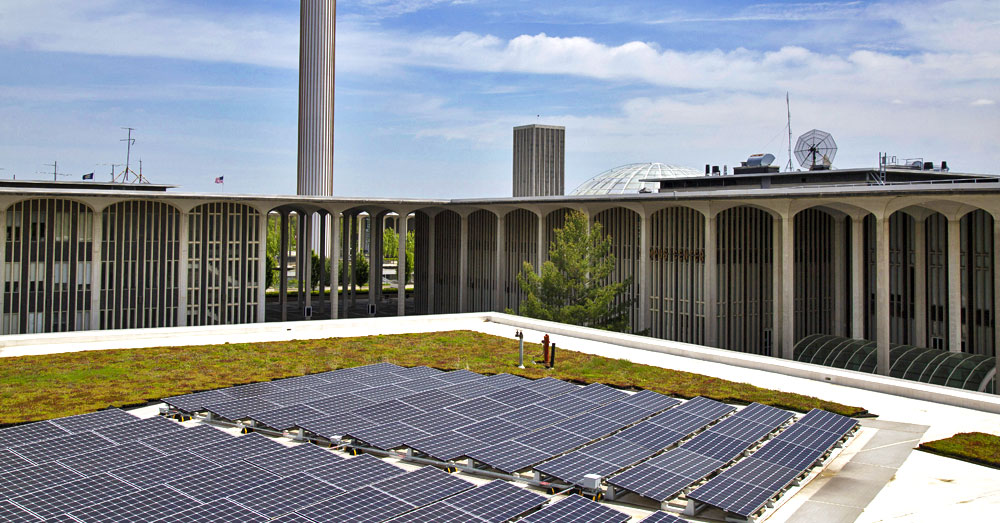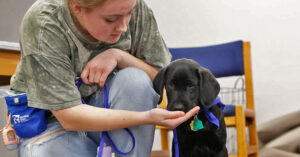Earth Day is a day in which the world celebrates a commitment to sustainable living and environmental protection, which are actively practiced all across SUNY. For example, students have many sustainability programs available to them in fields that cover all aspects of green living, from research and engineering to facility management and policy development, and campuses have operational goals of that are part of an effort to lower energy use and limit the amount of pollution and carbon gasses released into the atmosphere. In addition to all this, there are numerous research and sustainability projects at SUNY that shine a spotlight on environmental issues and how to make our world a cleaner, greener place.
We took a look at some recent examples at SUNY that show how research is hard at work building a cleaner, greener, more sustainable future. Learn more about them:
Building a 100 Percent Renewable Future
Atmospheric scientist Richard Perez has spent more than four decades researching solar energy technology, including its important role in the decarbonization of our society. Learn more about his work at the University at Albany’s Atmospheric Sciences Research Center.
UAlbany: ASRC’s Perez Earns International Award for Role in Renewable Energy Transition
Breathing New Life Into Aquatic Dead Zones
Researchers at SUNY ESF are doing innovative research using fish eye lenses and earstones to reveal impacts of low oxygen exposure in dead zones in lakes and oceans around the world. Learn more about their work with Project Breathless.
SUNY ESF: Project Breathless
Keeping Electronics Out of Landfills
New research from Binghamton offers a second life for CDs — turn them into flexible biosensors that can be used to monitor electrical activity in human hearts and muscles as well as lactose, glucose, pH and oxygen levels. Find out more about this sustainable approach for upcycling electronic waste.
Binghamton University: CDs to flexible biosensors: Researchers discover easy, inexpensive upcycling method
Minimizing Food Waste
In its first year, the composting pilot project at SUNY Oswego diverted more than 80,000 pounds of food waste from landfills and incinerators. Learn more about this award-winning program that will be implemented at all campus dining facilities.
SUNY Oswego: Sustainability Office’s composting program wins state award
Monitoring Coral Reefs
Stony corals, whose skeletons create the framework of a coral reef, have been in decline for at least the last 50 years. Learn about the latest University at Buffalo research focused on the rise of soft corals and the implications for the future of coral reef ecosystems.
UBuffalo: As coral reefs face threats, UB scientists study the future of soft corals
Becoming a Bee Campus
Up to 40 percent of pollinator species on earth may be at risk of extinction as a result of habitat loss, pesticide use, and climate change. Find out what Upstate Medical University is doing to make its campus a better place for bees, birds, butterflies and other animal pollinators.
Upstate Medical: Did you hear the buzz? Upstate officially named a Bee Campus
Climate Change Proves Deadly
Consecutive summer mass die-offs of bay scallops in the Peconic Estuary on Long Island have led to the declaration of a federal fishery disaster. Read about a Stony Brook University study that reveals the role that extreme summer temperatures play in the recurrent population crashes.
Stony Brook University: Climate Change Proves Deadly for Northern Bay Scallops




